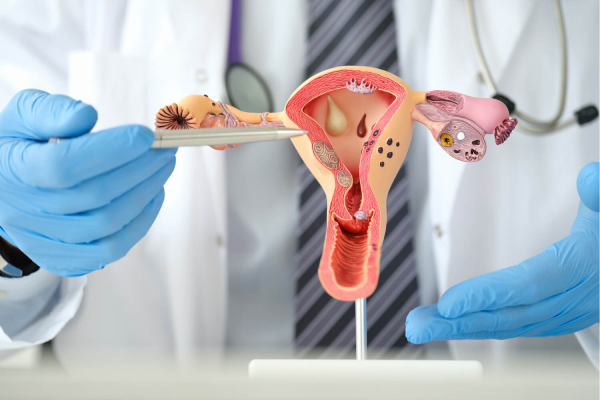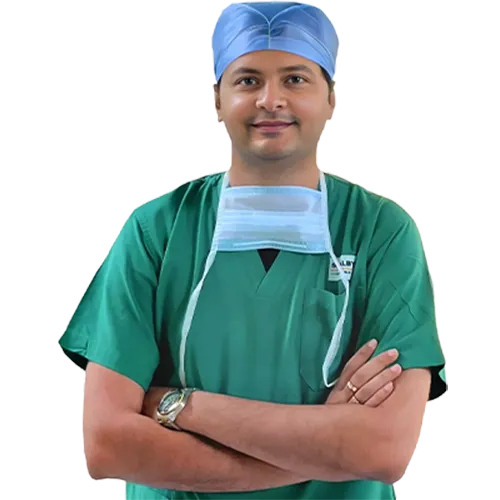Why Uterine Fibroid Embolization (UFE) is an Effective Treatment

Uterine fibroids are non-cancerous tumors that grow in or around the uterus. They are a common health issue for women, especially during their reproductive years. Though many women with uterine fibroids experience little to no symptoms, for others, these growths can lead to severe discomfort, pain, and various complications. The exact cause of uterine fibroids is not fully understood, but factors like genetics, hormonal imbalances, and environmental influences seem to contribute to their development.
While fibroids are typically benign, they can cause a variety of symptoms that affect a woman’s quality of life. These symptoms may include heavy menstrual bleeding, pelvic pain or pressure, frequent urination, and even infertility in some cases. Among the various treatment options available for uterine fibroids, Uterine Fibroid Embolization (UFE) and Uterine Artery Embolization (UAE) have emerged as effective, minimally invasive procedures. In this we’ll Explore into uterine fibroids, their symptoms, causes, treatment options, and why Dr. Aakash Patel is the right choice for these advanced treatments.
What is Uterine Fibroids?
Uterine fibroids, also known as leiomyomas, are muscular growths that develop in the wall of the uterus. These fibroids vary in size, shape, and location, and they can grow either inside the uterus, within the muscle wall, or on the outer surface of the uterus. Fibroids are typically classified into different types based on their location:
- Submucosal Fibroids : These fibroids develop just beneath the uterine lining and can protrude into the uterine cavity. They often cause heavy menstrual bleeding and can affect fertility.
- Intramural Fibroids: These fibroids grow within the uterine wall and are the most common type. They can cause pain and discomfort and may also contribute to heavy bleeding.
- Subserosal Fibroids: These fibroids grow on the outer wall of the uterus and can sometimes lead to pressure on surrounding organs, causing pelvic pain or bladder issues.
Symptoms and Causes of Uterine Fibroids
The exact cause of uterine fibroids remains unclear, but there are several factors that contribute to their development. The growth of fibroids is often linked to hormonal imbalances, especially an excess of estrogen and progesterone. Other contributing factors may include genetics, as women with a family history of fibroids are more likely to develop them.
The symptoms associated with uterine fibroids vary depending on their size, number, and location within the uterus. While some women may have no symptoms, others may experience:
- Heavy or prolonged menstrual bleeding
- Pelvic pain or pressure
- Frequent urination or difficulty emptying the bladder
- Back or leg pain
- Pain during intercourse
- Infertility or difficulty getting pregnant
In severe cases, fibroids can lead to anemia due to excessive blood loss during menstruation, which can result in fatigue, dizziness, and shortness of breath.
Treatments for Uterine Fibroids
Uterine fibroids have been treated with surgical procedures like hysterectomy, which involves the removal of the uterus, or myomectomy, which involves the removal of the fibroids themselves. While these surgeries can be effective, they come with significant recovery times, risks, and the possibility of complications. Many women seek alternatives to surgery, and there are a variety of non-surgical treatment options available, such as medication to manage symptoms, hormonal therapy, and more advanced treatments like Uterine Fibroid Embolization (UFE) and Uterine Artery Embolization (UAE).
Uterine Fibroid Embolization (UFE)
Uterine Fibroid Embolization (UFE) is a minimally invasive procedure designed to treat uterine fibroids by blocking the blood supply to the tumors, causing them to shrink and eventually die. This procedure has become a popular choice for women who are looking for an alternative to surgery, as it is effective, requires no incision, and involves a much shorter recovery time.
During the procedure, a small catheter is inserted into the femoral artery in the groin, and using advanced imaging techniques, the catheter is guided to the uterine arteries that supply blood to the fibroids. Tiny particles are then injected through the catheter to block these blood vessels, depriving the fibroids of oxygen and nutrients, which causes them to shrink.
The benefits of Uterine Fibroid Embolization include:
- Non-surgical approach: UFE is a minimally invasive procedure, which means there is no need for large incisions, resulting in less pain and a quicker recovery time compared to traditional surgery.
- Minimal recovery time: Most women can return to normal activities within a week or two.
- Preservation of the uterus: UFE preserves the uterus, which is especially important for women who still wish to preserve their fertility.
- Reduced risk of complications: Because UFE is less invasive than surgery, there is a lower risk of infection and other complications.
Uterine Fibroid Embolization has proven to be an effective treatment for women suffering from large, symptomatic fibroids who do not wish to undergo traditional surgery.
Uterine Artery Embolization (UAE)
Uterine Artery Embolization (UAE) is another minimally invasive procedure like Uterine Fibroid Embolization. UAE targets the uterine arteries to block the blood supply to fibroids, leading to their shrinkage and symptom relief. While both UFE and UAE are variations of the same general technique, UAE is typically used in women who have more widespread or multiple fibroids affecting the uterus. The procedure is usually performed by an interventional radiologist and is also performed under local anesthesia.
The process for Uterine Artery Embolization is almost identical to UFE, with small embolic particles being injected into the arteries supplying the fibroids. This results in a significant reduction in symptoms like heavy bleeding, pelvic pain, and pressure.
- Minimal recovery time : Most women recover in just a few days, allowing them to return to their daily activities faster.
- Non-invasive: No large incisions are needed, and the procedure is performed with local anesthesia.
- Fertility-preserving: Like UFE, UAE preserves the uterus, making it an excellent option for women who wish to keep their fertility intact.
Why Choose Dr. Aakash Patel for Uterine Fibroid Treatment?
When seeking treatment for uterine fibroids, it is important to choose a healthcare provider with expertise and experience in handling such complex conditions. Dr. Aakash Patel is a highly experienced specialist in interventional radiology, particularly in performing advanced treatments like Uterine Fibroid Embolization (UFE) and Uterine Artery Embolization (UAE).
At Dr. Aakash Patel’s Clinic, we understand the physical and emotional toll that uterine fibroids can take on a woman’s health and well-being. That’s why we offer advanced, minimally invasive procedures designed to provide significant relief from fibroid symptoms without the need for major surgery. Dr. Aakash Patel uses the latest imaging and embolization techniques to make sure that the procedure is as safe, effective, and comfortable as possible.
Choosing Dr. Aakash Patel means choosing a trusted, supportive healthcare provider who will take the time to understand your unique health needs and develop a personalized treatment plan that is adjusted to you.
Conclusion
Uterine fibroids are a common yet complex condition that can significantly affect a woman’s quality of life. However, with modern, minimally invasive treatments like Uterine Fibroid Embolization (UFE) and Uterine Artery Embolization (UAE), women no longer must suffer in silence or undergo major surgeries. These innovative treatments offer significant relief from symptoms, preserve fertility, and reduce recovery time.
If you are experiencing symptoms of uterine fibroids and are seeking a non-surgical solution, Dr. Aakash Patel is here to help. With expertise in Uterine Fibroid Embolization (UFE) and Uterine Artery Embolization (UAE), we provide the highest standard of care and personalized treatment plans that prioritize your health and well-being.
For more information about uterine fibroids or to schedule a consultation, please call us at +91 9586961070 or mail us at aakashptl9@gmail.com. We look forward to helping you take the first step toward a healthier, fibroid-free future.



